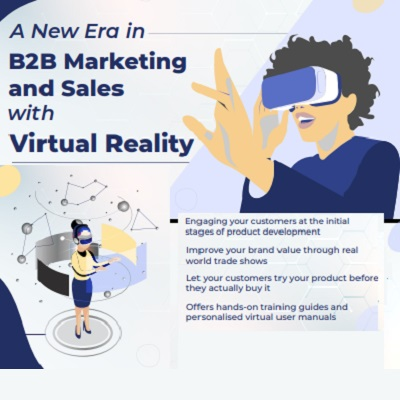Augmented reality (AR) technology has rapidly transformed the marketing landscape by offering immersive and interactive experiences for customers. By blending the physical and digital worlds, AR allows brands to engage with their audience in unique and compelling ways, driving increased brand awareness and customer loyalty. In this article, we will explore how businesses can effectively utilize AR in their marketing strategies to create meaningful connections with consumers and differentiate themselves in a crowded marketplace.
Introduction to Augmented Reality
-
Augmented Reality (AR) enhances the real world with digital overlays.
-
AR in Marketing transforms customer experiences.
-
Learn more about AR applications in marketing at Anyalpha.
Benefits of Augmented Reality in Marketing
-
Enhanced customer engagement
-
Improved brand awareness
-
Increased sales and revenue
-
Interactive product presentations
-
Personalized shopping experiences
Learn more about how our company utilizes augmented reality in marketing on our website.
Examples of Successful Augmented Reality Campaigns
- Pepsi’s "Unbelievable Bus Shelter" campaign
- IKEA’s "IKEA Place" app for virtual furniture placement
- L’Oreal’s "Modiface AR" for virtual makeup try-on
- Coca-Cola’s "Taste the Feeling" campaign with AR elements
For more information on how AR can benefit the food and beverages industry, visit AnyAlpha’s Food and Beverages page.
How to Use Augmented Reality to Engage Customers
- Create interactive AR experiences.
- Develop AR mobile apps.
- Implement AR in packaging or print materials.
- Incorporate AR filters on social media platforms.
- Utilize AR for virtual try-ons.
- Provide AR-based games or contests.
- Offer AR product demonstrations.
- Collaborate with influencers for AR campaigns.
For more information on incorporating augmented reality into your marketing strategy, visit AnyAlpha.
Integrating Augmented Reality with Traditional Marketing
-
By combining AR features with traditional marketing strategies, businesses can create interactive and engaging experiences for customers.
-
This integration can lead to increased brand awareness, customer engagement, and ultimately, higher conversion rates.
-
Utilizing AR in print ads, product packaging, or events can make marketing campaigns more memorable and impactful.
-
To explore how AR can enhance your marketing efforts, visit AnyAlpha’s mobile app development page.
Overcoming Challenges in Implementing Augmented Reality in Marketing
-
Lack of technical expertise
-
High implementation costs
-
Limited consumer awareness of AR technology
-
Ensuring seamless user experience
-
Integrating AR into existing marketing strategies
For more information on how to effectively implement augmented reality in marketing, visit Anyalpha E-commerce Store Development Company.
The Future of Augmented Reality in Marketing
-
Augmented Reality in marketing will continue to evolve, offering interactive and personalized experiences to engage customers effectively.
-
Advancements in AR technology will make it more accessible and cost-effective for businesses of all sizes.
-
Integrating AR into marketing strategies will become essential for brands looking to stay competitive and drive customer engagement.
-
To learn more about implementing AR in your marketing campaigns, visit AnyAlpha Mobile App Development in California.
Case Studies and Results of Augmented Reality Marketing Campaigns
-
L’Oreal utilized AR to let customers try on virtual makeup, resulting in a 65% increase in app downloads.
-
IKEA implemented AR to help shoppers visualize furniture in their homes, leading to a 98% increase in conversion rates.
-
Nivea incorporated AR to showcase sunscreen effectiveness, resulting in a 22% increase in sales.
Learn more about digital marketing on our website.
Conclusion
In conclusion, Augmented Reality has proven to be a powerful tool for marketers looking to engage and captivate customers in innovative ways. By offering immersive experiences, personalized interactions, and real-time information, businesses are able to create memorable campaigns that leave a lasting impression on their target audience. Successful examples such as IKEA’s AR app and the Pokemon Go game have demonstrated the potential of AR in marketing. By integrating AR with traditional marketing strategies, companies can create multi-dimensional campaigns that enhance brand visibility and customer engagement. While challenges such as technical limitations and cost barriers exist, the future of AR in marketing looks promising as technology continues to advance. As seen in various case studies, the results of AR marketing campaigns have shown a significant increase in customer engagement, brand awareness, and ultimately sales. It is clear that Augmented Reality is reshaping the marketing landscape and will continue to play a vital role in shaping the future of customer engagement.
If you are looking to explore how Augmented Reality can revolutionize your marketing strategies and engage your customers like never before, visit https://DeltaWriter.com to learn more.

Director @Anyalpha, a Top Software Development Company offering Mobile App Development and Website Development Services to Businesses & Startups.

